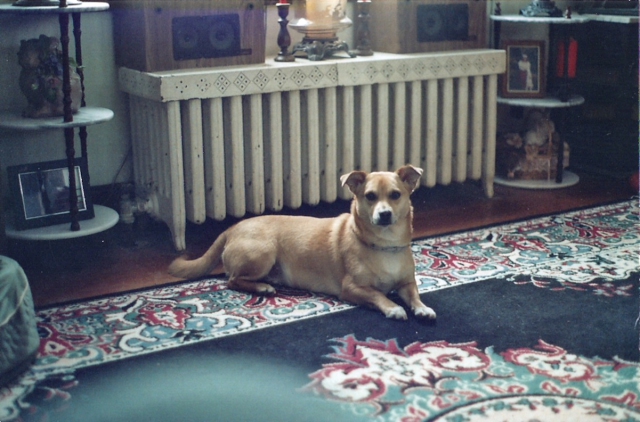QuestionHello Ms. Brittan,
I ran across this website as I was browng for information about a new poodle we are going to buy. I have never had a dog because I am allergic but decided to do so for me and my family. We have had a cat for 15 years and he just passed last month. Now, to do the dog thing...well I do know alot about dogs and the basics but not about potty training and crating. My husband said to crate him at night but I feel he can be ok after training so he can be free to roam the house downstairs. We have a large house and I have fences to use so he won't go upstairs yet. What do you do for barking at night? I know he will do something, but what do you do about it? What about when he potties in the house? I know you put paper down for potty and take outside often. How long does that last? Well that's enough to ask right now. I appreiate your help and I hope to hear from you soon. thank you very much
Patty Alexander
AnswerHere are a couple good sites on housebreaking:
http://www.peteducation.com/article.cfm?cls=2&cat=1548&articleid=157
http://www.inch.com/~dogs/housebreaking.html
I only use newspaper if I have puppies confined in a larger area such as an exercise pen. Once I start housebreaking at 5-6 weeks, the paper is taken up and their confinement area is made smaller so that they will not want to potty there.
All of my youngsters are crated through at least their first year; some are crated their entire lives. It really depends on the individual. One (intact) male that used to be one of my "bedroom dogs", began hiking his leg in my room, so he got booted downstairs into a crate at night, and he will remain there. Bed privileges (or "freedom") are earned; they are not a right. At night, or when we are gone, most of our dogs are crated; only a handful of trustworthy dogs are allowed to remain loose. Crates keep a dog honest, and one knows the dog will be safe when one returns home. In the case of an emergency, one will know instantly where the dog is if one needs to grab the dog and leave in the middle of the night or during a storm or earthquake.
When you bring in a new puppy, his crate must be somewhere fairly close so that you can hear him at night if he needs to go outside. You may not be able to hear him if he is downstairs. It sometimes takes a few weeks before puppies can sleep through the night, but in those early weeks, that may still mean getting up at 5AM or so to let him outside as a puppy's night will not be as long as ours until the bladder matures more. While a puppy may fuss a bit when crated those first few days, that should end quickly; just ignore that nuisance stuff. When I start crate-training here, I do it earlier in the day and leave and go shopping for a few hours so I don't have to hear those early indignant first cries. Feeding him in his crate will get him to love his crate very quickly. If the breeder has already separated the puppies at night and started crate-training individually as he/she should have, this part will go very quickly.
If a puppy has an accident in the house, the first one is his. All others after that are YOURS as you didn't pay enough attention to the puppy, WATCH him, and let him outside soon enough. Remember, if you cannot watch him and devote 100% of your time to him during housebreaking, he should be crated! Housebreaking time will vary depending on the individual. The smart ones can get the hang of it in a week or so; others will take much longer. But always remember that it is a PUPPY, and those little bladders don't have a lot of control for several months so they will need to be put outside frequently.

 mixed breed dog
QuestionSweetie Monster
QUESTION: hi this may be
mixed breed dog
QuestionSweetie Monster
QUESTION: hi this may be
 3yr. old Yorkie with ? OCD behavior
Question
Keelee
We live in S.Central WI & with the chan
3yr. old Yorkie with ? OCD behavior
Question
Keelee
We live in S.Central WI & with the chan
 Dog Worms
QuestionDog Poo
Dog Poo
QUESTION: Ive got
Dog Worms
QuestionDog Poo
Dog Poo
QUESTION: Ive got
 willpups hair grow back to original color
Question
here is his color befo here is after &nb
willpups hair grow back to original color
Question
here is his color befo here is after &nb
 Growth on dogs right foreleg
Question
Foreleg 1 Foreleg 2
Hi Gary,
Our
Growth on dogs right foreleg
Question
Foreleg 1 Foreleg 2
Hi Gary,
Our